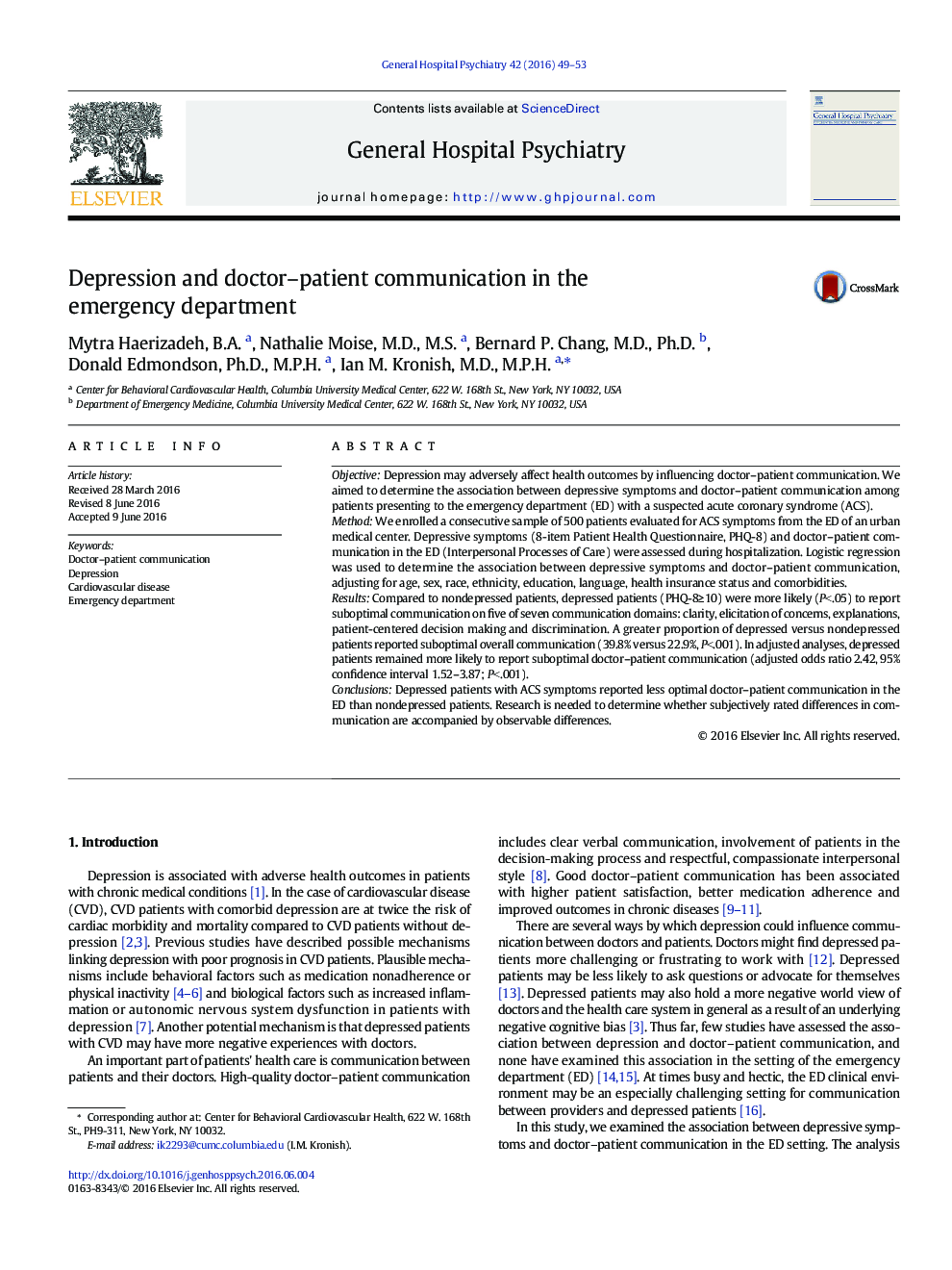| Article ID | Journal | Published Year | Pages | File Type |
|---|---|---|---|---|
| 3237530 | General Hospital Psychiatry | 2016 | 5 Pages |
ObjectiveDepression may adversely affect health outcomes by influencing doctor–patient communication. We aimed to determine the association between depressive symptoms and doctor–patient communication among patients presenting to the emergency department (ED) with a suspected acute coronary syndrome (ACS).MethodWe enrolled a consecutive sample of 500 patients evaluated for ACS symptoms from the ED of an urban medical center. Depressive symptoms (8-item Patient Health Questionnaire, PHQ-8) and doctor–patient communication in the ED (Interpersonal Processes of Care) were assessed during hospitalization. Logistic regression was used to determine the association between depressive symptoms and doctor–patient communication, adjusting for age, sex, race, ethnicity, education, language, health insurance status and comorbidities.ResultsCompared to nondepressed patients, depressed patients (PHQ-8≥10) were more likely (P<.05) to report suboptimal communication on five of seven communication domains: clarity, elicitation of concerns, explanations, patient-centered decision making and discrimination. A greater proportion of depressed versus nondepressed patients reported suboptimal overall communication (39.8% versus 22.9%, P<.001). In adjusted analyses, depressed patients remained more likely to report suboptimal doctor–patient communication (adjusted odds ratio 2.42, 95% confidence interval 1.52–3.87; P<.001).ConclusionsDepressed patients with ACS symptoms reported less optimal doctor–patient communication in the ED than nondepressed patients. Research is needed to determine whether subjectively rated differences in communication are accompanied by observable differences.
